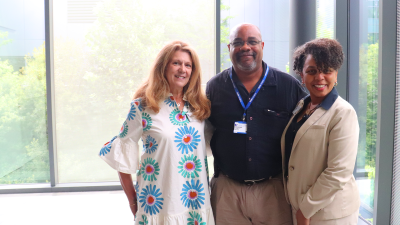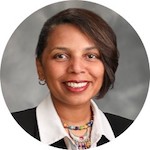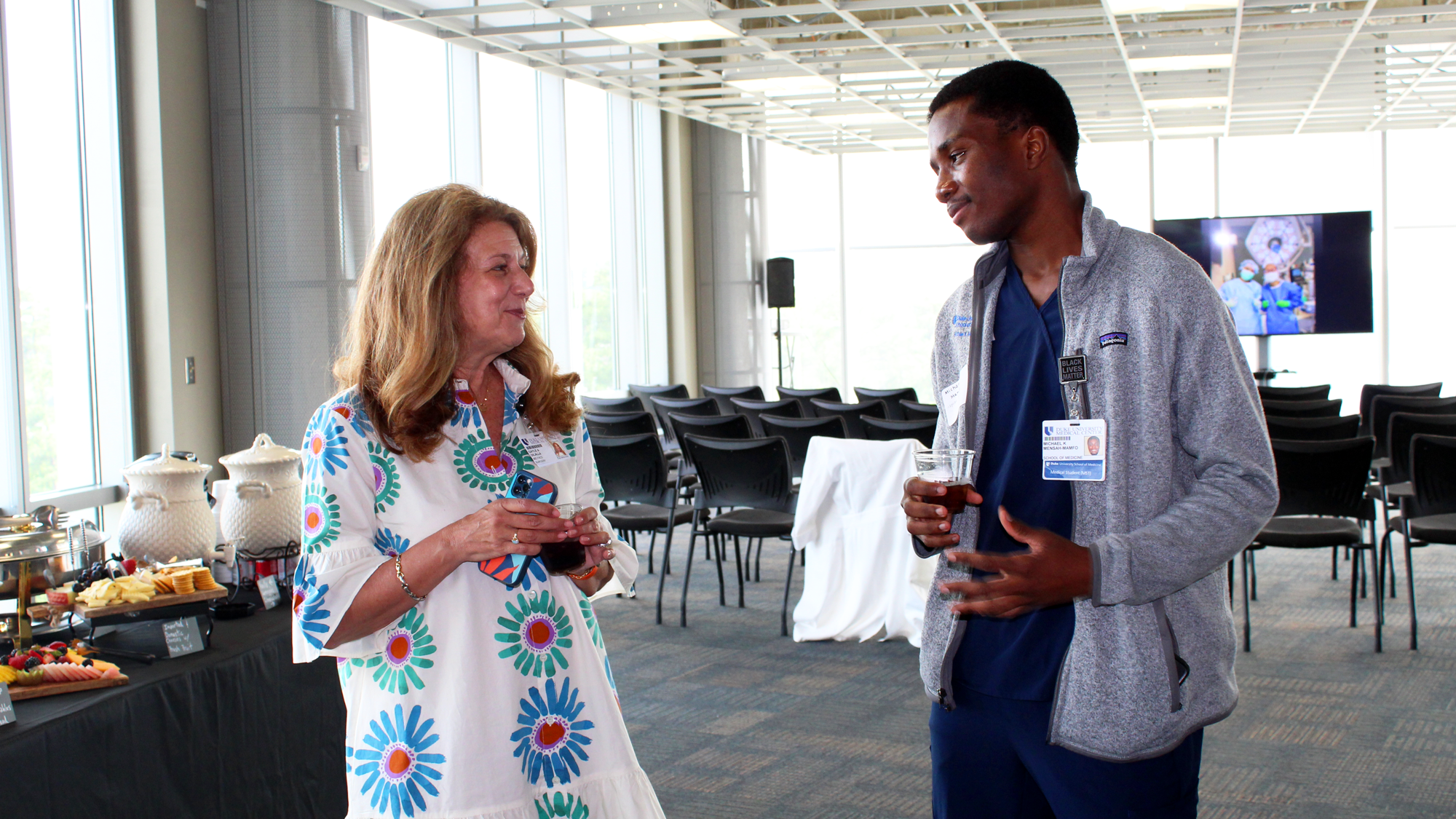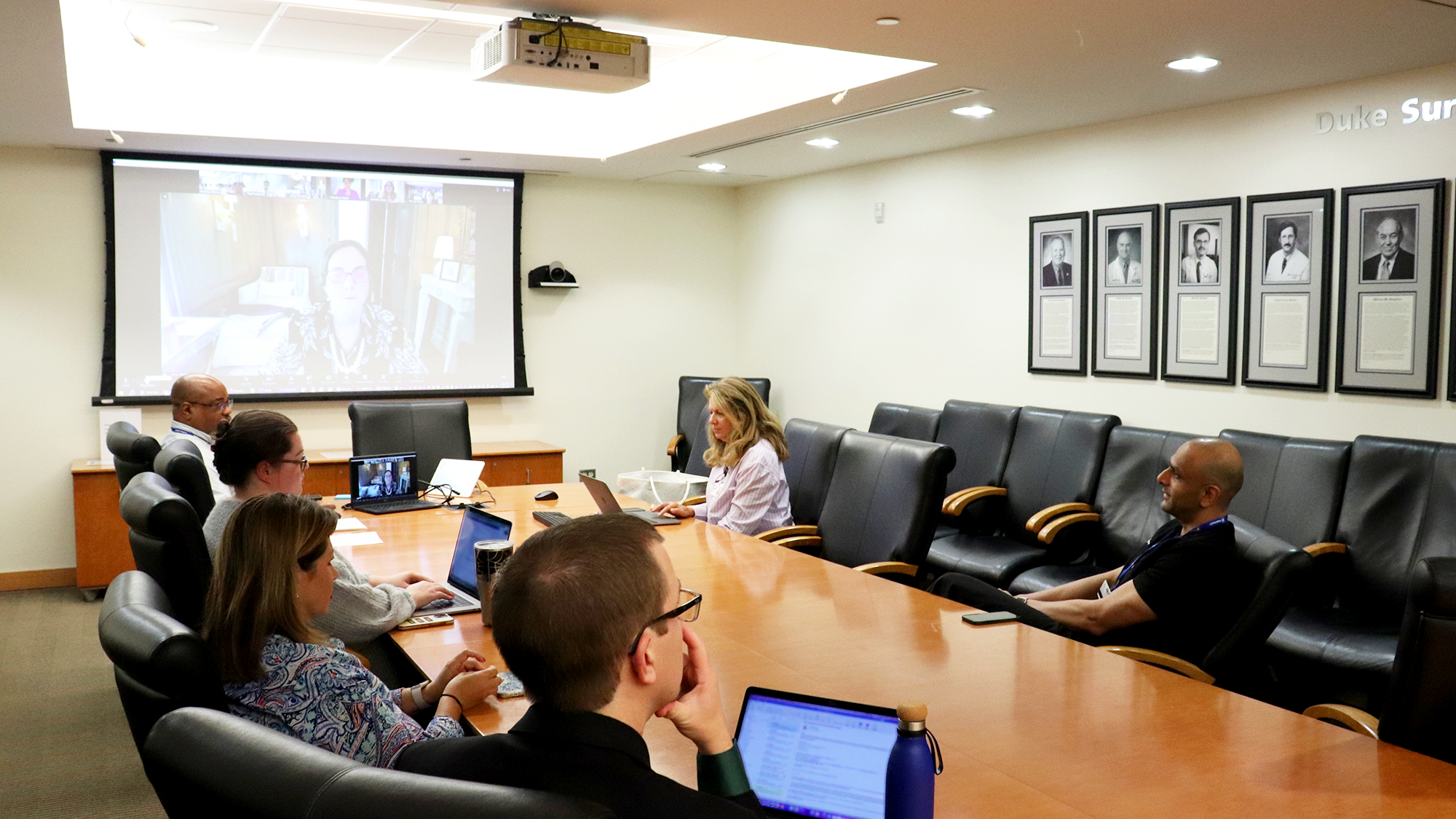
A Growing Promise: New Leadership Reinvigorates EDI Mission
The mission of the Duke Department of Surgery is rooted in fostering an inclusive and sustainably equitable environment throughout its multidisciplinary teams.
With diversity as one of its core values, Duke Surgery in recent years has experienced growth from–and established dedicated resources toward–enhanced diversity among faculty, trainees, staff, and partners.
This continued growth and emphasis on fostering an inclusive culture most recently led the Duke Department of Surgery to establish an overarching leadership team for this effort, with the department’s first ever Vice Chair of Equity, Diversity, and Inclusion at the helm.
Forming the EDI Pillar

Assistant Professor of Surgery, Division of Surgical Oncology
In 2017, Duke Surgery established the Diversity and Inclusion (D&I) Committee, comprised of faculty, staff, and trainees across the department with the promise to promote best practices, facilitate data sharing and equity analyses, and support advocacy at the department level.
As Duke Surgery continued to grow as a department, in 2021 the D&I Committee evolved to become the Sustaining Equity, Elevating Diversity in Surgery (SEEDS) Initiative, a centralized program established to invest in the Department’s faculty, trainees, and staff through an ongoing series of focused initiatives. Comprised of members of the department who are invested in evaluating, reframing, and establishing procedures and policies that reflect and enhance the Duke Surgery culture, SEEDS is organized around defined key areas of focus with a goal of implementing tangible, meaningful change.
“If you could go somewhere and see a provider that looks and sounds like you, you'll be more inclined to come back and follow through with the medical treatment, which then leads to a better outcome in the long run for your health.”
– Rodney Reeves, EDI Program Coordinator
Two years later, the crucial role that SEEDS plays in Duke Surgery has grown, thus establishing a need for leadership positions dedicated to enhancing the department’s EDI mission. In August of 2022, Gayle DiLalla, MD, Assistant Professor of Surgery in the Division of Surgical Oncology, was named the Department of Surgery’s inaugural Vice Chair of EDI.

EDI Program Director
As Vice Chair, Dr. DiLalla is responsible for identifying challenges and implementing solutions focusing on departmental goals for advancing equity, diversity, and inclusive excellence. The Vice Chair is also charged with ensuring all faculty, staff, and trainees adopt best practices for promoting an equitable and inclusive culture and climate.
“One of my roles is to be the Department of Surgery’s representative to advance EDI across both the Duke School of Medicine and the Duke University Health System together,” says Dr. DiLalla.
“That is really important so that we’re not necessarily always working in silos, but instead we’re looking across our institution holistically.”

EDI Program Coordinator
Along with Dr. DiLalla, two members from SEEDS were elevated to leadership roles, rounding out the Duke Surgery EDI leadership team. Pamela Keels, MBA, Divisional Administrator for the Divisions of Pediatric General Surgery and Plastic, Maxillofacial, and Oral Surgery was named EDI Program Director, and former staff assistant Rodney Reeves was promoted to EDI Program Coordinator. Together, the trio looks for ways Duke Surgery can sustain and enhance its commitment to a diverse workforce of faculty, trainees, and staff, inclusive of all identities.
“We want to make everyone feel welcome at the table and committed to an equitable workforce,” says Reeves, “giving them the same opportunities to achieve and making sure that there are no systemic barriers to achieve their personal career goals as well as the goals of the department as a whole.”

A Jazz Ensemble
The EDI leadership team has three major goals to aid in their mission for an equitable and inclusive culture: to establish and maintain inclusive hiring practices at every level, to promote employee and patient retention, and to attract and foster future patients coming to Duke for care.
“Being equitable and fair is not limited to just the Duke Surgery faculty, trainees, and staff,” says Reeves. “It affects the current and future patients that come to see us.”
Reeves explains, “If you could go somewhere and see a provider that looks and sounds like you, you’ll be more inclined to come back and follow through with the medical treatment, which then leads to a better outcome in the long run for your health.”
"The best thing about Duke is our people and their lived experiences coming together to help shape a better future for each other and our patients."
– Dr. Gayle DiLalla, Vice Chair of Equity, Diversity, and Inclusion
To accomplish these goals, the EDI leaders and the Steering Committee, a group of faculty and staff who oversee the SEEDS Initiative, come together to plan, formulate, and implement initiatives to enact impactful change for patient care, education, research, and the community.
“It’s a little bit like jazz,” says Dr. DiLalla. “We’re all playing together, but everybody contributes in their own way because they all bring something different to the stage for a harmonious product. The best thing about Duke is our people and their lived experiences coming together to help shape a better future for each other and our patients.”
For the 2024 fiscal year, one of the goals EDI leadership will focus on is the inclusive hiring of faculty. Taking inspiration from the success that the holistic and diverse recruitment strategies have brought for the Duke Surgery residency programs, the team plans on using the same approach for prospective faculty members. This initiative will organically lead to accomplishing the second goal of retaining exceptional faculty, trainees, and staff, as well as attracting new patients to Duke.
“We certainly would like to work toward equity,” says Dr. DiLalla. “But also, really looking at the inclusion and belonging piece so that not only will people want to come, but they will feel like Duke Surgery is their home and they want to stay and grow with us. Under the EDI umbrella, we can facilitate various programs, opportunities, and resources to ensure that.”

Towards An Inclusive Culture
When Duke Surgery formed the new EDI leadership core, it reinforced the importance of EDI initiatives to not only the department’s growth, but to its role as a leader in the local community, throughout the country, and across the globe.
“EDI is like quality improvement and patient safety,” says Keels. “It is an integral part of the way we work at Duke.”
Over time, it is the hope of Keels, Reeves, and Dr. DiLalla that EDI is not only normalized, but that it becomes second nature to every thought, action, and decision made within Duke Surgery. They want to see success through acknowledgment—from not just within the department, but from other peer institutions—that Duke Surgery is a leader in providing an equitable and diverse workforce at all levels.
“Equity, diversity, and inclusion shouldn’t be separate from everything else we do,” says Dr. DiLalla. “It should be something that we’re thinking about all the time to ensure that how we give care, how we educate our trainees, how we interact with our colleagues, and how we pursue our research—everything that we’re doing—we think of it through that bigger lens.”
Feature image: From the left to right, Dr. Gayle DiLalla, Vice Chair of EDI; Rodney Reeves, EDI Program Coordinator; and Pamela Keels, EDI Program Director.